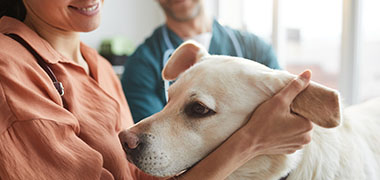
This role has a low level of AI exposure. Core skills such as adaptability, social intelligence, and complex physical tasks remain beyond the capabilities of current AI.
Explore all careersA Veterinary Pathologist studies animal diseases, diagnoses illnesses through lab analysis, and collaborates with vets to improve treatments and advance research.
Get qualified to work as a Veterinary Pathologist with a course recognised across Australia. Speak to a training provider to learn more.
Browse occupations related to Veterinary Pathologist



A Veterinary Pathologist studies animal diseases through laboratory analysis of tissues, fluids, and necropsy specimens. You might work in veterinary diagnostic laboratories, academic institutions, or research facilities. Veterinary Pathologists diagnose diseases, identify causes of illness, and contribute to research on animal health. You’ll analyse laboratory results, interpret data, and collaborate with veterinarians and researchers to support accurate diagnoses and improve treatment strategies.
Veterinary Pathologists play a crucial role in understanding and managing animal diseases. You’ll need to be detail-oriented, possess strong analytical skills, and have a deep knowledge of veterinary pathology. You’ll work with a range of stakeholders to enhance animal health and contribute to advances in veterinary medicine and research.